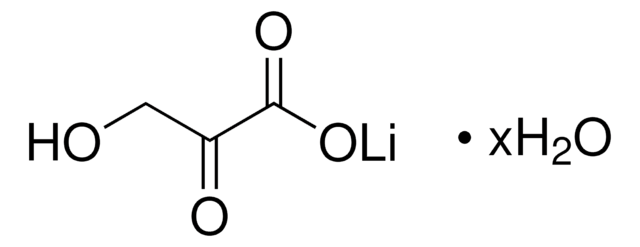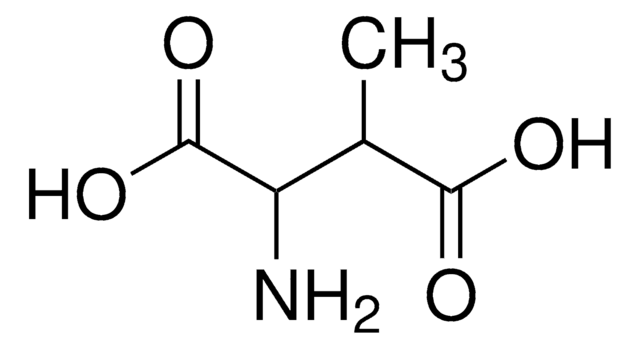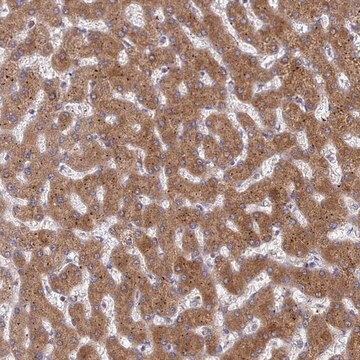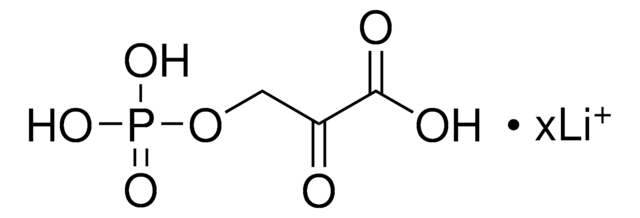06367
Sodium β-hydroxypyruvate hydrate
≥97.0% (calc. based on dry substance, NT)
Synonym(s):
β-Hydroxypyruvic acid sodium salt, 3-Hydroxy-2-oxopropionic acid sodium salt
About This Item
Recommended Products
Quality Level
Assay
≥97.0% (calc. based on dry substance, NT)
form
powder
impurities
~1 mol water
application(s)
clinical testing
format
neat
storage temp.
2-8°C
SMILES string
OCC(C([O-])=O)=O.O.[Na+]
InChI
1S/C3H4O4.Na.H2O/c4-1-2(5)3(6)7;;/h4H,1H2,(H,6,7);;1H2/q;+1;/p-1
InChI key
KSEDNTCSZJLSFJ-UHFFFAOYSA-M
Related Categories
Biochem/physiol Actions
Storage Class Code
11 - Combustible Solids
WGK
WGK 3
Flash Point(F)
Not applicable
Flash Point(C)
Not applicable
Personal Protective Equipment
Certificates of Analysis (COA)
Search for Certificates of Analysis (COA) by entering the products Lot/Batch Number. Lot and Batch Numbers can be found on a product’s label following the words ‘Lot’ or ‘Batch’.
Already Own This Product?
Find documentation for the products that you have recently purchased in the Document Library.
Customers Also Viewed
Our team of scientists has experience in all areas of research including Life Science, Material Science, Chemical Synthesis, Chromatography, Analytical and many others.
Contact Technical Service









